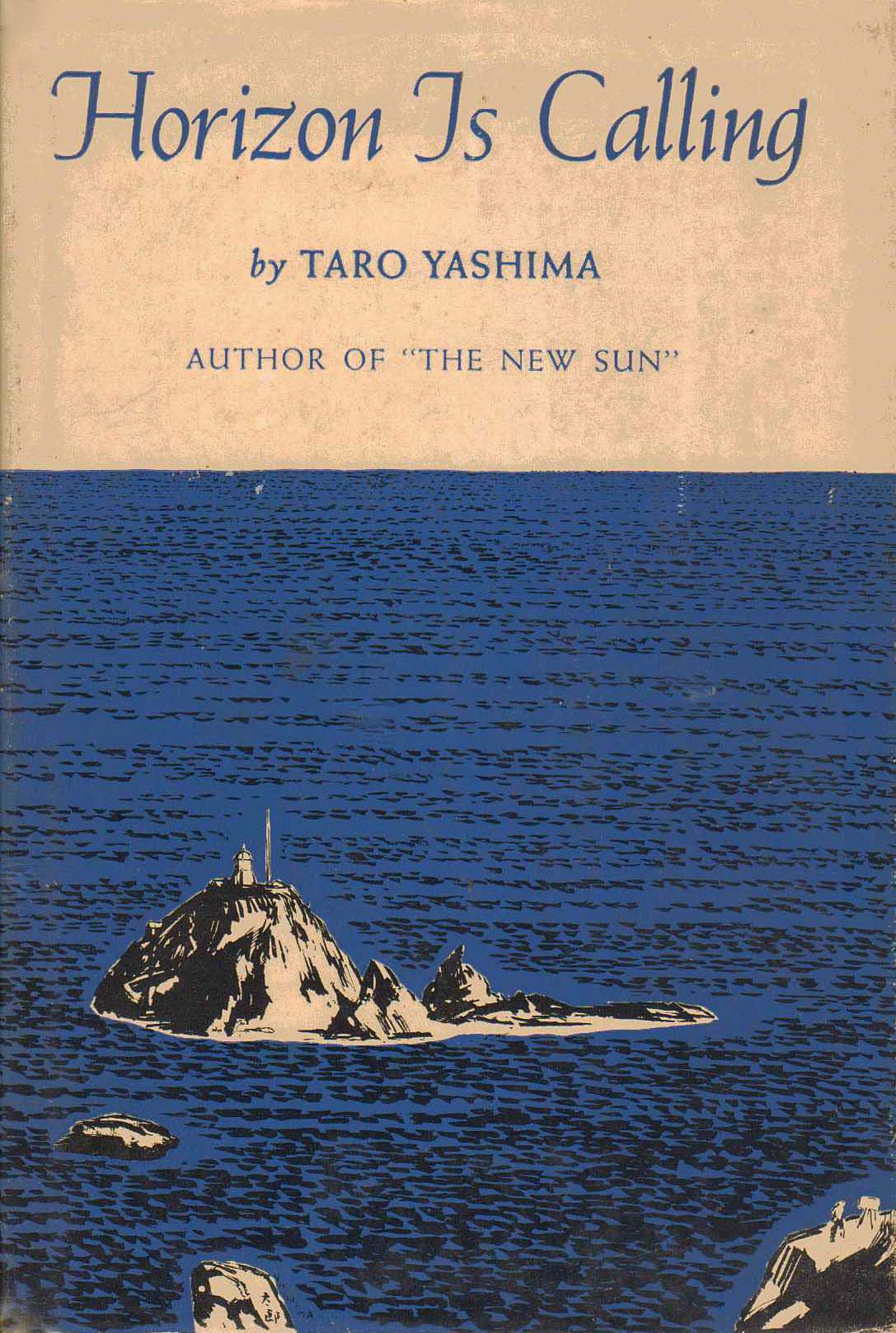Horizon Is Calling by Taro Yashima
 The remarkable story begun in The New Sun continues in this second volume of Taro Yashima’s graphic memoir, a strikingly simple combination of pictures and brief text that capture a man’s journey away from his homeland. Long out of print since its 1947 first printing, Horizon begins in “[t]he winter of 1935-1936 … the first winter my wife [fellow artist and activist Mitsu Yashima] and I faced after we were out of prison.”
The remarkable story begun in The New Sun continues in this second volume of Taro Yashima’s graphic memoir, a strikingly simple combination of pictures and brief text that capture a man’s journey away from his homeland. Long out of print since its 1947 first printing, Horizon begins in “[t]he winter of 1935-1936 … the first winter my wife [fellow artist and activist Mitsu Yashima] and I faced after we were out of prison.”
Having survived inhumane conditions during unjustified imprisonment by the Japanese secret police – including pregnancy and the miraculous healthy birth of their son Mako – the couple move into the home of Mitsu’s parents while they slowly regain their health. In spite of a growing military presence, Yashima is both humbled and inspired by the struggles of his friends and colleagues as they face their challenging lives with integrity and tenacity.
Young Mako (who would become the Oscar-nominated actor of film, television, and stage) is growing into a strong, sensitive, artistic little boy: “Mako soon began to express in drawings what was reflected into his eyes,” proud Papa observes. Yashima’s recreations of his son’s developing art is especially touching and effective.
Meanwhile, the war machine moves into high gear, and the secret police take every opportunity to coerce, cheat, and punish ordinary citizens: “These people were the inhuman creatures who did not care if the children of others were barbecued for the realization of their own success.” War kills more and more innocent victims, and yet the Japanese government insists greater sacrifices will ensure complete victory over the “the white race [which] is oppressing and exploiting the yellow race.”
Yashima notes that his son’s talented drawings increasingly depict “many things he had not known [which] became objects of understanding” for a boy far too young to know war so well. Realizing he and his family have no future in his native Japan, Yashima looks beyond his homeland: “Yes, the thought of escaping from my own country really raised its head here … There was no barrier in the ocean. The horizon was calling.”
Yashima did indeed arrive on U.S. shores with his wife in 1939 as political refugees; their son Mako would not be able to join them until a decade later. [The book’s back cover has an especially memorable photo of Yashima with arms wrapped around a tentatively smiling young Mako.] Yashima served not the Japanese military, but the U.S. Army, working as an artist for the OSS (the pre-CIA) during World War II. In his “Foreword,” Yashima writes about the difficulties he faced writing his book, a draft of which he carried and continued to develop during his U.S. military service. He dedicates the volume “To the bravest – soldiers of the 442nd and 100th battalions – and to their mothers and fathers” … to the second-generation Americans of Japanese descent who were taken from U.S. prison camps where they were incarcerated by the U.S. government for ‘looking like the enemy’ to become the most decorated units ever in U.S. military history and their Japanese-born parents who had chosen to make America their home. Perhaps that’s why each illustrated page of Horizon contains both English and Japanese [New Sun was in English only], so that both Japanese American generations – American-born and Japanese-immigrated – could read his book together.
Throughout the five decades of his American life, Yashima had hopes of returning to his native country when Japan was finally freed from its military regime; perhaps he hoped his memoir, too, might find its way ‘home’ someday to a Japanese audience as well. Near the end of his life, Yashima was able to finally visit his home village of Nejime, Kagoshima, a bittersweet journey which was captured in a short documentary, Taro Yashima’s Golden Village, produced and directed by Glenn Johnson, narrated by Yashima himself, and available from the Japanese American National Museum.
Readers: Young Adult, Adult
Published: 1947
Sorry, the comment form is closed at this time.

Discussion